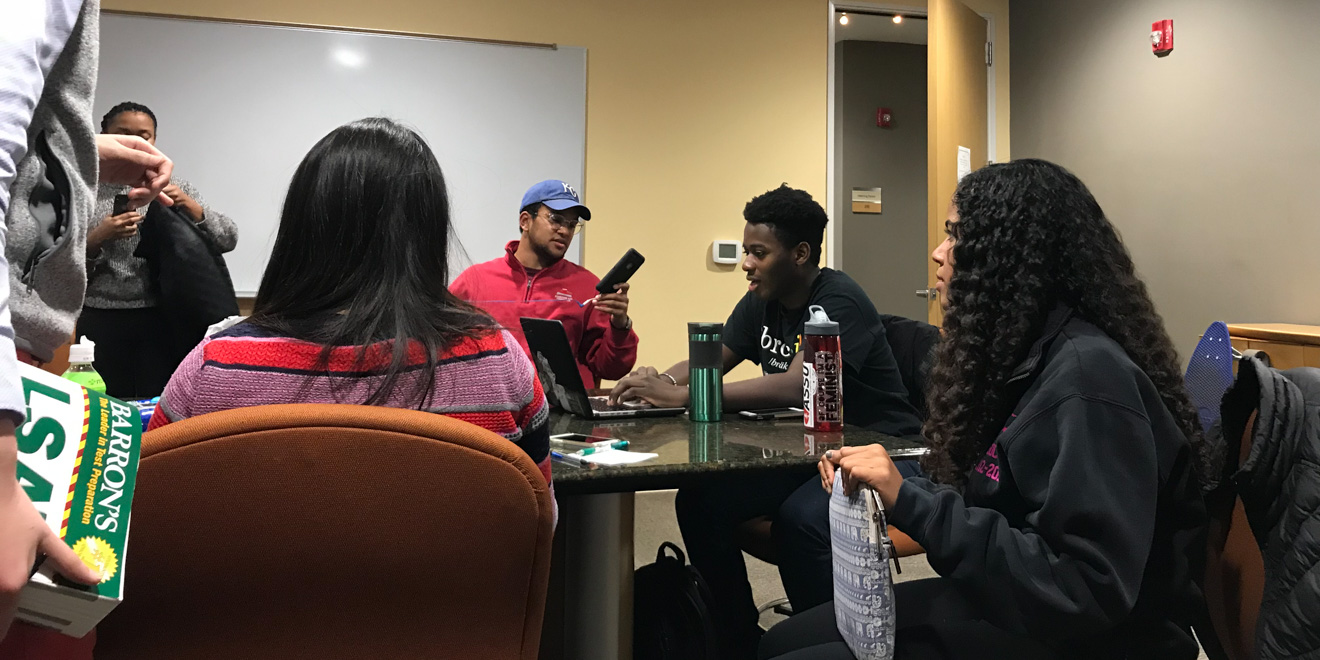In the 22nd Meeting of the 19th Undergraduate Senate, senators discussed the upcoming Cardinal Conversation with controversial social scientist Charles Murray. The Senate also discussed the upcoming ASSU election and passed a resolution supporting the Accountable and Affordable Health Care Initiatives.
The petition deadline for the 2018-19 ASSU elections have now closed, ASSU Financial Manager Jelani Munroe ’17 reported. According to Munroe, 35 undergraduates and 16 graduate students seek seats on the Undergraduate Senate and Graduate Student Council, respectively. Three president-vice president slates seek the ASSU Executive positions.
The final ballot of candidates is expected to be produced “within the next few weeks,” Munroe said, and the deadline for graduate students to declare their candidacy is being extended to allow more involvement and engagement.
ASSU Chair Kojoh Atta ’20 said he was excited to see 35 candidates on the ballot.
Atta also noted that Murray will be speaking on campus tomorrow at a Cardinal Conversations event. Atta encouraged his fellow senators to attend the “Take Back The Mike: Racists Are Not Welcome Here” counter-programming, which will happen at History corner during the event.
“It would be very powerful if we as senators are at this event, really standing by and standing against these hateful and demeaning speakers,” he said.
Atta said that an institution as influential as Stanford should not support hate speech.
Last November, when self-proclaimed Islamophobe Robert Spencer spoke at a Stanford College Republicans-sponsored event that was also partially funded by the Senate, senators condemned the appearance following their decision to allocate money to it. In a bill passed at the time, Senators condemned Spencer’s visit but did not revoke funding in order to “support all student groups equally.”
On February 15th, President Marc Tessier-Lavigne and Provost Persis Drell published an op-ed in the Daily about Murray, wherein they said that they “do not intend to rescind anyone’s invitation” but added that “students have expressed concern… that some of Murray’s work has been used to justify and give credence to white supremacist viewpoints… [and] that no action of the university should be taken as an endorsement of abhorrent white supremacist viewpoints.”
Senate Committees also provided updates on their progress. The Student Life Committee reported that they are working on reforming AlertSU, the Academic Affairs Committee said they met with Michelle Elam from Faculty Senate and the Communications Committee said they are developing an event to teach students how to run for Senate.
The Appropriations Committee presented the week’s Quick Grant funding bills, with chair Gabe Rosen ’19 noting that there was a “very small amount of overall money” with “nothing really unexpected” on the table. The motion to fully recommend the Committee recommendations on this week’s grant funding bills passed successfully.
The Senate tabled for one week a joint resolution in support of an introduction to disability studies course, due to what Atta referred to as “logistical problems.”
A resolution for the Senate to support the Accountable and Affordable Health Care Initiatives, meanwhile, successfully passed. The Initiatives would ensure that a significant portion of revenue from medical care payers is used to improve the quality of care at hospitals through measures such as better equipment and higher staffing ratios.
According to the text of the passed bill, Stanford Health Care is in the “worst-performing quartile of hospitals in the country with respect to HACs,” or Hospital-Acquired Conditions, despite the fact that between 2010 and 2014 the program’s operating income grew by 32 percent each year, on average.
The Initiatives are important in order “to help improve the conditions for the [Stanford] locations and our workers, because they’re understaffed and there’s also no shown correlation between the really expensive costs of care and the quality of care, at least at Stanford Hospital,” said Senator Ana Queiroz ’20. “So it just really seems out of place that it’s that expensive.”
The ASSU also heard from a representative from the Stanford Coalition for Planning an Equitable 2035 (SCoPE 2035) about a resolution the group had written regarding the the Stanford General Use Permit. Several senators spoke about the importance of addressing housing affordability around Stanford.
ASSU Executives Justice Tention ’18 and Vicki Niu ’18 said they had recently presented to Student Affairs on issues impacting students, and that they are involved in Campus Climate Survey town halls.
Senator Kimiko Hirota ’20 suggested that a Senate member speak on the Senate’s behalf at a “Speak Out in Support of Emily Doe” event, which is being sponsored by the Stanford Association of Students for Sexual Assault Prevention (ASAP) and will take place near Kappa Alpha this Friday.
Event attendees will advocate for Brock Turner’s victim, who recently dissociated from a memorial plaque at the site of her rape following a dispute with the University over the plaque’s language.
The Senate will next convene Feb. 27, 2018.
Felicia Hou contributed reporting.
Contact Brian Contreras at brianc42 ‘at’ stanford.edu and Annie Chang at annette.chang ‘at’ stanford.edu.
